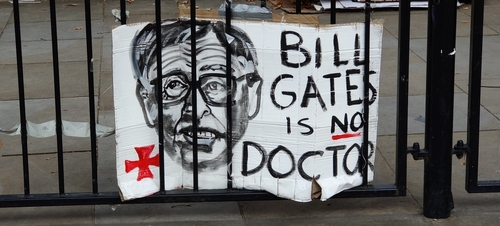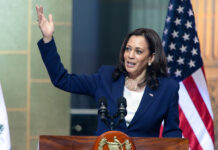
In a revelation that has sparked widespread discussion, it has come to light that the Bill & Melinda Gates Foundation made a significant investment in the biotechnology company BioNTech shortly before the outbreak of the COVID-19 pandemic. The timing of this investment has raised questions and speculation about the prescience of such financial moves.
The investment, totaling a substantial $55 million, was made on September 4th, 2019. Merely two months later, the world would become aware of the novel coronavirus, leading to a global health crisis. This investment by one of the world’s most prominent philanthropists has since grown exponentially, with the initial sum ballooning to over $550 million in value in just a few years.
Bill Gates is upset that "misinformation about vaccines", and "associating certain people, like myself or Fauci having malign intent, with vaccines", has led to not only a surge in "vaccination hesitancy", but also a loss of trust in his various "public health" initiatives, such… pic.twitter.com/T7rWpmMPMf
— Wide Awake Media (@wideawake_media) February 6, 2024
BioNTech, which partnered with pharmaceutical giant Pfizer to develop one of the first mRNA COVID-19 vaccines, saw its prominence and financial success soar as the vaccine rolled out globally. Pfizer’s revenue hit an unprecedented $100 billion in 2022, largely due to the vaccine’s distribution.
The Gates Foundation’s investment was ostensibly aimed at supporting the identification and pre-clinical development of vaccine candidates for diseases like HIV and tuberculosis. However, the subsequent pivot to COVID-19 vaccine development has led some to question whether there was more than just luck involved in the timing of the investment.
Do you think Bill Gates is mentally ill, a supervillain, or both? pic.twitter.com/0c8tPJAY3F
— Bruce Porter Jr. (@NetworksManager) February 3, 2024
Adding to the intrigue, reports have surfaced alleging that the BBC, which received a donation of $20 million from Bill Gates, may have misrepresented the risk of COVID-19 to bolster public support for lockdown measures. Critics argue that this could have influenced public perception and policy decisions during the critical early stages of the pandemic.
Independent voices have pointed out discrepancies between media reports and the reality on the ground during the pandemic’s first wave. For instance, despite claims of hospitals being overwhelmed, some experts have noted that hospital bed occupancy was at an all-time low during that period. This has fueled further debate over the media’s portrayal of the crisis and the motivations behind it.
The confluence of these events – the investment in BioNTech, the donation to the BBC, and the subsequent media narratives – has led to a swirl of skepticism. Observers are asking whether it is mere coincidence that such a well-timed investment preceded one of the most significant global health emergencies in recent history.
While the official stance is that the investment was part of routine philanthropic activities, the remarkable timing continues to be a topic of conversation among those who scrutinize the intersection of big business, media influence, and public health policy. As the world continues to grapple with the ramifications of the pandemic, the scrutiny of these events underscores the ongoing quest for transparency and accountability from global leaders and institutions.










